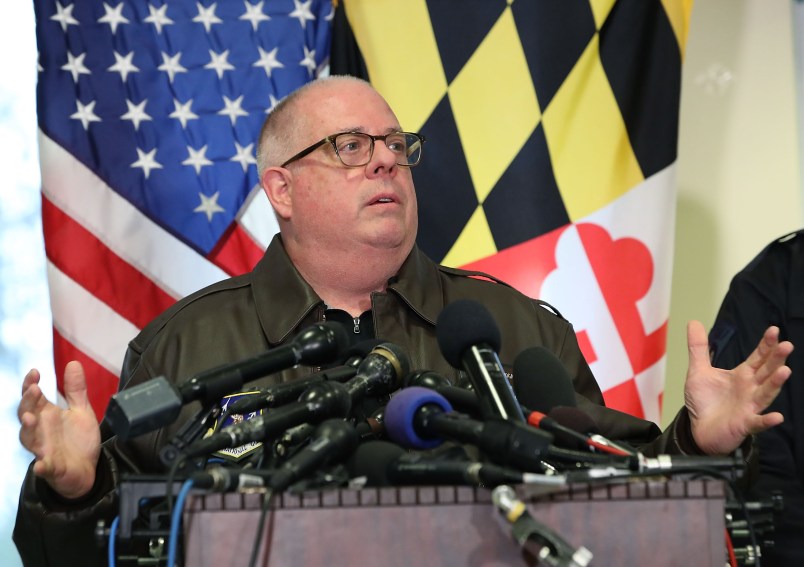Governor Maryland Larry Hogan (R) announced Tuesday that he’d delay the state’s April 28 primary until June 2, and hold a mail-in special election to fill the congressional seat vacated by the death of Rep. Elijah Cummings (D-MD).
After banning gatherings of over 50 people and shuttering bars and restaurants Monday, he said that in-person voting had become untenable.
“It would endanger public heath to allow thousands of people to assemble in places like schools and senior centers,” he said in a press conference, adding that many poll workers and election judges are “retirees,” part of the most “vulnerable population” when it comes to serious illness from COVID-19.
As to filling Cummings’ seat, he has directed the state board of elections to implement a vote-by-mail system, for which he said ballots could be prepared in time for the April election.
“Free and fair elections are the very foundation of American democracy,” he said. “While there are many valid reasons for unease and uncertainty right now, ensuring the voices of Maryland citizens are heard shouldn’t be one of them.”
He also directed the board of elections to have a comprehensive plan for conducting the delayed primary by April 3.
Earlier in the week, Hogan was seriously considering making the April 28 primary election mail-in as well. Maryland enjoys a robust absentee ballot system, and allows for ballot applications online, which would make the transition more doable than in some other states.
Per state law, Hogan could’ve made the decision to go all mail-in unilaterally. But he said after his remarks Tuesday that the state board of elections told him that it would’ve been unable to make the whole state mail-in before the April election.
As John Fortier, director of the Bipartisan Policy Center’s Democracy Project, told TPM, it’s “not so easy to ramp up the system.” The switch would likely result in a lengthy ballot tabulation and delayed reporting times.
Michael Hanmer, director of graduate studies in the Department of Government and Politics at the University of Maryland, added that it would be a “stress on the system” and would require a comprehensive plan to educate the voting public about the change.
Maryland has now joined Georgia, Louisiana, Ohio and Kentucky in delaying their primaries.
Ohio’s delay came yesterday after a judge initially shot down an attempt by the governor to postpone the election through the courts. Later that night, and Ohio health director declared the coronavirus a health emergency and ordered the polls be closed. The state Supreme Court protected that move, denying a legal challenge to the state’s delay.



